1949 The Fair Deal
US
President Harry Truman proposes national health insurance, raising the
minimum wage, strengthening the position of organized labor, and guarantying
the civil rights of all Americans. Referencing the popular "New
Deal" programs of his predecessor, Franklin
Delano Roosevelt, Truman styled his reform package the "Fair Deal."
Annual Message to the Congress on the State of the
Union.
[Delivered in person before a joint session, at 13:00. broadcast nationally
on radio.]
Mr. President, Mr. Speaker, Members of the Congress:
I
am happy to report to this 81st Congress that the state of the Union is
good. Our Nation is better able than ever before to meet the needs of
the American people, and to give them their fair chance in the pursuit
of happiness. This great Republic is foremost among the nations of the
world in the search for peace.
During the last 16 years, our people have been creating
a society which offers new opportunities for every man to enjoy his share
of the good things of life.
In this society, we are conservative about the values and
principles which we cherish; but we are forward-looking in protecting
those values and principles and in extending their benefits. We have rejected
the discredited theory that the fortunes of the Nation should be in the
hands of a privileged few. We have abandoned the "trickle-down" concept
of national prosperity. Instead, we believe that our economic system should
rest on a democratic foundation and that wealth should be created for
the benefit of all.
The recent election shows that the people of the United
States are in favor of this kind of society and want to go on improving
it.
The American people have decided that poverty is just as
wasteful and just as unnecessary as preventable disease. We have pledged
our common resources to help one another in the hazards and struggles
of individual life. We believe that no unfair prejudice or artificial
distinction should bar any citizen of the United States of America from
an education, or from good health, or from a job that he is capable of
performing.
The attainment of this kind of society demands the best efforts of every
citizen in every walk of life, and it imposes increasing responsibilities
on the Government.
The Government must work with industry, labor, and the farmers in keeping
our economy running at full speed. The Government must see that every
American has a chance to obtain his fair share of our increasing abundance.
These responsibilities go hand in hand.
We cannot maintain prosperity unless we have a fair distribution of
opportunity and a widespread consumption of the products of our factories
and farms.
Our Government has undertaken to meet these responsibilities.
We have made tremendous public investments in highways,
hydroelectric power projects, soil conservation, and reclamation. We have
established a system of social security. We have enacted laws protecting
the rights and the welfare of our working people and the income of our
farmers. These Federal policies have paid for themselves many times over.
They have strengthened the material foundations of our democratic ideals.
Without them, our present prosperity would be impossible.
Reinforced by these policies, our private enterprise system
has reached new heights of production. Since the boom year of 1929, while
our population has increased by only 20 percent, our agricultural production
has increased by 45 percent, and our industrial production has increased
by 75 percent. We are turning out far more goods and more wealth per worker
than we have ever done before.
This progress has confounded the gloomy prophets-at home
and abroad-who predicted the downfall of American capitalism. The people
of the United States, going their own way, confident in their own powers,
have achieved the greatest prosperity the world has even seen.
But, great as our progress has been, we still have a long
way to go.
As we look around the country, many of our shortcomings
stand out in bold relief.
We are suffering from
excessively high prices.
Our production is still not large enough to satisfy our
demands.
Our minimum wages are far too low.
Small business is losing ground to growing monopoly.
Our farmers still face an uncertain future. And too many
of them lack the benefits of our modern civilization.
Some of our natural resources are still being wasted.
We are acutely short of electric power, although the means
for developing such power are abundant.
Five million families are still living in slums and firetraps.
Three million families share their homes with others.
Our health is far behind the progress of medical science.
Proper medical care is so expensive that it is out of the reach of the
great majority of our citizens.
Our schools, in many localities, are utterly inadequate.
Our democratic ideals are often thwarted by prejudice and
intolerance.
Each of these shortcomings is also an opportunity-an opportunity
for the Congress and the President to work for the good of the people.
Our first great opportunity is to protect our economy against
the evils of "boom and bust."
This objective cannot be attained by government alone. Indeed,
the greater part of the task must be performed by individual efforts under
our system of free enterprise. We can keep our present prosperity, and
increase it, only if free enterprise and free government work together
to that end.
We cannot afford to float along ceaselessly on a postwar
boom until it collapses. It is not enough merely to prepare to weather
a recession if it comes. Instead, government and business must work together
constancy to achieve more and more jobs and more and more production-which
mean more and more prosperity for all the people.
The business cycle is man-made; and men of good will, working
together, can smooth it out.
So far as business is concerned, it should plan for steady,
vigorous expansion-seeking always to increase its output, lower its prices,
and avoid the vices of monopoly and restriction. So long as business does
this, it will be contributing to continued prosperity, and it will have
the help and encouragement of the Government.
The Employment Act of 1946 pledges the Government to use
all its resources to promote maximum employment, production, and purchasing
power. This means that the Government is firmly committed to protect business
and the people against the dangers of recession and against the evils
of inflation. This means that the Government must adapt its plans and
policies to meet changing circumstances.
At the present time,
our prosperity is threatened by inflationary pressures at a number of
critical points in our economy. And the Government must be in a position
to take effective action at these danger spots. To that end, I recommend
that the Congress enact legislation for the following purposes:
- First, to continue the power to control consumer credit and enlarge
the power to control bank credit.
- Second, to grant authority to regulate speculation on the commodity
exchanges.
- Third, to continue export control authority and to provide adequate
machinery for its enforcement.
- Fourth, to continue the priorities and allocation authority in the
field of transportation.
- Fifth, to authorize priorities and allocations for key materials in
short supply.
- Sixth, to extend and strengthen rent control.
- Seventh, to provide standby authority to impose price ceilings for
scarce commodities which basically affect essential industrial production
or the cost of living, and to limit unjustified wage adjustments which
would force a break in an established price ceiling.
- Eighth, to authorize an immediate study of the adequacy of production
facilities for materials in critically short supply, such as steel;
and, if found necessary, to authorize Government loans for the expansion
of production facilities to relieve such shortages, and to authorize
the construction of such facilities directly, if action by private industry
fails to meet our needs.
The Economic Report, which I shall submit to the Congress shortly,
will discuss in detail the economic background for these recommendations.
One of the most important factors in maintaining prosperity
is the Government's fiscal policy. At this time, it is essential not only
that the Federal budget be balanced, but also that there be a substantial
surplus to reduce inflationary pressures, and to permit a sizable reduction
in the national debt, which now stands at $252 billion. I recommend, therefore,
that the Congress enact new tax legislation to bring in an additional
$4 billion of Government revenue. This should come principally from additional
corporate taxes. A portion should come from revised estate and gift taxes.
Consideration should be given to raising personal income rates in the
middle and upper brackets.
If we want
to keep our economy running in high gear, we must be sure that every group
has the incentive to make its full contribution to the national welfare.
At present, the working men and women of the Nation are unfairly discriminated
against by a statute that abridges their rights, curtails their constructive
efforts, and hampers our system of free collective bargaining. That statute
is the Labor-Management Relations Act of 1947, sometimes called the Taft-Hartley
Act.
That act should be repealed!
The Wagner Act should be reenacted. However, certain improvements,
which I recommended to the Congress 2 years ago, are needed. Jurisdictional
strikes and unjustified secondary boycotts should be prohibited. The use
of economic force to decide issues arising out of the interpretation of
existing contracts should be prevented. Without endangering our democratic
freedoms, means should be provided for setting up machinery for preventing
strikes in vital industries which affect the public interest.
The Department of Labor should be rebuilt and strengthened
and those units properly belonging within that department should be placed
in it.
The health of our economy and its maintenance at high levels
further require that the minimum wage fixed by law should be raised to
at least 75 cents an hour.
If our free enterprise economy is to be strong and healthy,
we must reinvigorate the forces of competition. We must assure small business
the freedom and opportunity to grow and prosper. To this purpose, we should
strengthen our antitrust laws by closing those loopholes that permit monopolistic
mergers and consolidations.
Our national farm program should be improved-not only in
the interest of the farmers, but for the lasting prosperity of the whole
Nation. Our goals should he abundant farm production and parity income
for agriculture. Standards of living on the farm should be just as good
as anywhere else in the country.
Farm price supports are an essential part of our program
to achieve these ends. Price supports should be used to prevent farm price
declines which are out of line with general price levels, to facilitate
adjustments in production to consumer demands, and to promote good land
use. Our price support legislation must be adapted to these objectives.
The authority of the Commodity Credit Corporation to provide adequate
storage space for crops should be restored.
Our program for farm prosperity should also seek to expand
the domestic market for agricultural products, particularly among low-income
groups, and to increase and stabilize foreign markets.
We should give special
attention to extending modern conveniences and services to our farms.
Rural electrification should be pushed forward. And in considering legislation
relating to housing, education, health, and social security, special attention
should be given to rural problems.
Our growing population and the expansion of our economy
depend upon the wise management of our land, water, forest, and mineral
wealth. In our present dynamic economy, the task of conservation is not
to lockup our resources but to develop and improve them. Failure, today,
to make the investments which are necessary to support our progress in
the future would be false economy.
We must push forward the development of our rivers for power,
irrigation, navigation, and flood control. We should apply the lessons
of our Tennessee Valley experience to our other great river basins. I
again recommend action be taken by the Congress to approve the St. Lawrence
Seaway and Power project. This is about the fifth time I have recommended
it.
We must adopt a program for the planned use of the petroleum
reserves under the sea, which are-and must remain-vested in the Federal
Government. We must extend our programs of soil conservation. We must
place our forests on a sustained yield basis, and encourage the development
of new sources of vital minerals.
In all this we must make sure that the benefits of these
public undertakings are directly available to the people. Public power
should be earned to consuming areas by public transmission lines where
necessary to provide electricity at the lowest possible rates. Irrigation
waters should serve family farms and not land speculators.
The Government has still other opportunities-to help raise
the standard of living of our citizens. These opportunities lie in the
fields of social security, health, education, housing, and civil rights.
The present coverage
of the social security laws is altogether inadequate; the benefit payments
are too low. One-third of our workers are not covered. Those who receive
old-age and survivors insurance benefits receive an average payment of
only $25 a month. Many others who cannot work because they are physically
disabled are left to the mercy of charity. We should expand our social
security program, both as to the size of the benefits and the extent of
coverage, against the economic hazards due to unemployment, old age, sickness,
and disability.
We must spare no effort to raise the general level of health
in this country. In a nation as rich as ours, it is a shocking fact that
tens of millions lack adequate medical care. We are short of doctors,
hospitals, nurses. We must remedy these shortages. Moreover, we need-and
we must have without further delay-a system of prepaid medical insurance
which will enable every American to afford good medical care.
It is equally shocking that millions of our children are
not receiving a good education. Millions of them are in overcrowded, obsolete
buildings. We are short of teachers, because teachers' salaries are too
low to attract new teachers, or to hold the ones we have. All these school
problems will become much more acute as a result of the tremendous increase
in the enrollment in our elementary schools in the next few years. I cannot
repeat too strongly my desire for prompt Federal financial aid to the
States to help them operate and maintain their school systems.
The governmental agency which now administers the programs
of health, education, and social security should be given full departmental
status.
The housing shortage continues to be acute. As an immediate
step, the Congress should enact the provisions for low-rent public housing,
slum clearance, farm housing, and housing research which I have repeatedly
recommended. The number of low-rent public housing units provided for
in the legislation should be increased to 1 million units in the next
7 years. Even this number of units will not begin to meet our need for
new housing.
Most of the houses we need will have to be built by private
enterprise, without public subsidy. By producing too few rental units
and too large a proportion of high-priced houses, the building industry
is rapidly pricing itself out of the market. Building costs must be lowered.
The Government is now engaged in a campaign to induce all
segments of the building industry to concentrate on the production of
lower priced housing. Additional legislation to encourage such housing
will be submitted.
The authority which I have requested, to allocate materials
in short supply and to impose price ceilings on such materials, could
be used, if found necessary, to channel more materials into homes large
enough for family life at prices which wage earners can afford.
The driving force behind our progress is our faith in our
democratic institutions. That faith is embodied in the promise of equal
rights and equal opportunities which the founders of our Republic proclaimed
to their countrymen and to the whole world.
The fulfillment of this promise is among the highest purposes
of government. The civil rights proposals I made to the 80th Congress,
I now repeat to the 81st Congress. They should be enacted in order that
the Federal Government may assume the leadership and discharge the obligations
clearly placed upon it by the Constitution.
I stand squarely behind those proposals. Our domestic programs
are the foundation of our foreign policy. The world today looks to us
for leadership because we have so largely realized, within our borders,
those benefits of democratic government for which most of the peoples
of the world are yearning.
We are following a foreign policy which is the outward expression
of the democratic faith we profess. We are doing what we can to encourage
free states and free peoples throughout the world, to aid the suffering
and afflicted in foreign lands, and to strengthen democratic nations against
aggression.
The heart of our foreign policy is peace. We are supporting
a world organization to keep peace and a world economic policy to create
prosperity for mankind. Our guiding star is the principle of international
cooperation. To this concept we have made a national commitment as profound
as anything in history. To it we have pledged our resources
and our honor.
Until a system of world security is established upon which
we can safely rely, we cannot escape the burden of creating and maintaining
armed forces sufficient to deter aggression. We have made great progress
in the last year in the effective organization of our Armed Forces, but
further improvements in our national security legislation are necessary.
Universal training is essential to the security of the United States.
During the course of this session I shall have occasion
to ask the Congress to consider several measures in the field of foreign
policy. At this time, I recommend that we restore the Reciprocal Trade
Agreements Act to full effectiveness, and extend it for 3 years. We should
also open our doors to displaced persons without unfair discrimination.
It should be clear by now to all citizens that we are not
seeking to freeze the status quo. We have no intention of preserving the
injustices of the past. We welcome the constructive efforts being made
by many nations to achieve a better life for their citizens. In the European
recovery program, in our good-neighbor policy and in the United Nations,
we have begun to batter down those national walls which block the economic
growth and the social advancement of the peoples of the world.
We believe that if we hold resolutely to this course, the
principle of international cooperation will eventually command the approval
even of those nations which are now seeking to weaken or subvert it.
We stand at the opening of an era which can mean either
great achievement or terrible catastrophe for ourselves and for all mankind.
The strength of our Nation must continue to be used in the
interest of all our people rather than a privileged few. It must continue
to be used unselfishly in the struggle for world peace and the betterment
of mankind the world over.
This is the task before us.
It is not an easy one. It has many complications, and there
will be strong opposition from selfish interests.
I hope for cooperation from farmers, from labor, and from
business. Every segment of our population and every individual has a right
to expect from our Government a fair deal.
In 1945, when I came down before the Congress for the first time on
April 16, I quoted to you King Solomon's prayer that he wanted wisdom
and the ability to govern his people as they should be governed. I explained
to you at that time that the task before me was one of the greatest in
the history of the world, and that it was necessary to have the complete
cooperation of the Congress and the people of the United States.
Well now, we are taking a new start with the same situation.
It is absolutely essential that your President have the complete cooperation
of the Congress to carry out the great work that must be done to keep
the peace in this world, and to keep this country prosperous.
The people of this great country have a right to expect
that the Congress and the President will work in closest cooperation with
one objective-the welfare of the people of this Nation as a whole.
In the months ahead I know that I shall be able to cooperate
with this Congress.
Now, I am confident that the Divine Power which has guided
us to this time of fateful responsibility and glorious opportunity will
not desert us now.
With that help from Almighty God which we have humbly acknowledged
at every turning point in our national life, we shall be able to perform
the great tasks which He now sets before us. |
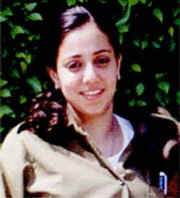
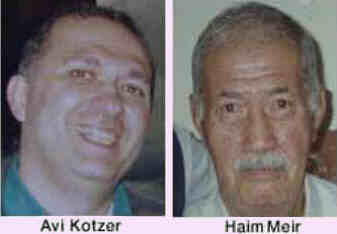
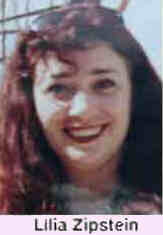 Deaths
which occurred on a January 05:
Deaths
which occurred on a January 05: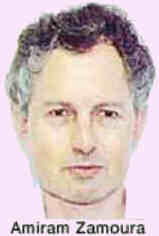 Amiram
Zemoura, 55; Mordechai Evioni, 52; and Viktor Shebayev,
62; of Holon;
Amiram
Zemoura, 55; Mordechai Evioni, 52; and Viktor Shebayev,
62; of Holon; Mihai
Sabau, 38; and Ion Nelu Nicolae, 35; from Romania;
Mihai
Sabau, 38; and Ion Nelu Nicolae, 35; from Romania;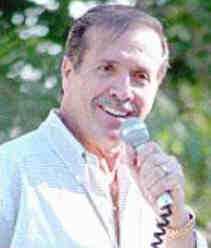 2002
Charles J. Bishop, 15, deliberately crashing the four-seat 2000
Cessna 172R he is piloting into the 28th floor of the 42-story Bank of America
building in Tampa, Florida. The boy had been taking flying lessons for two
years, took off from the flying school alone without permission and ignored
signals from a Coast Guard helicopter. In the wrecked plane is found a note
by the boy, expressing support for Osama Bin Laden and for the 11 Sep 2001
attacks by hijacked airliners on the World Trade Center and the Pentagon.
2002
Charles J. Bishop, 15, deliberately crashing the four-seat 2000
Cessna 172R he is piloting into the 28th floor of the 42-story Bank of America
building in Tampa, Florida. The boy had been taking flying lessons for two
years, took off from the flying school alone without permission and ignored
signals from a Coast Guard helicopter. In the wrecked plane is found a note
by the boy, expressing support for Osama Bin Laden and for the 11 Sep 2001
attacks by hijacked airliners on the World Trade Center and the Pentagon.